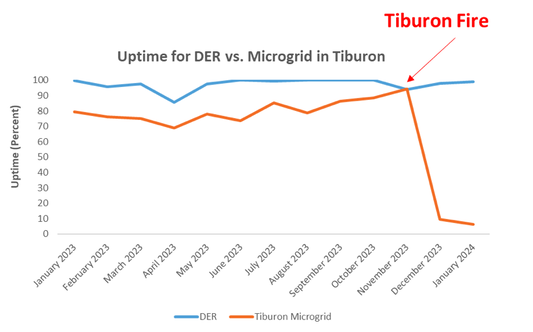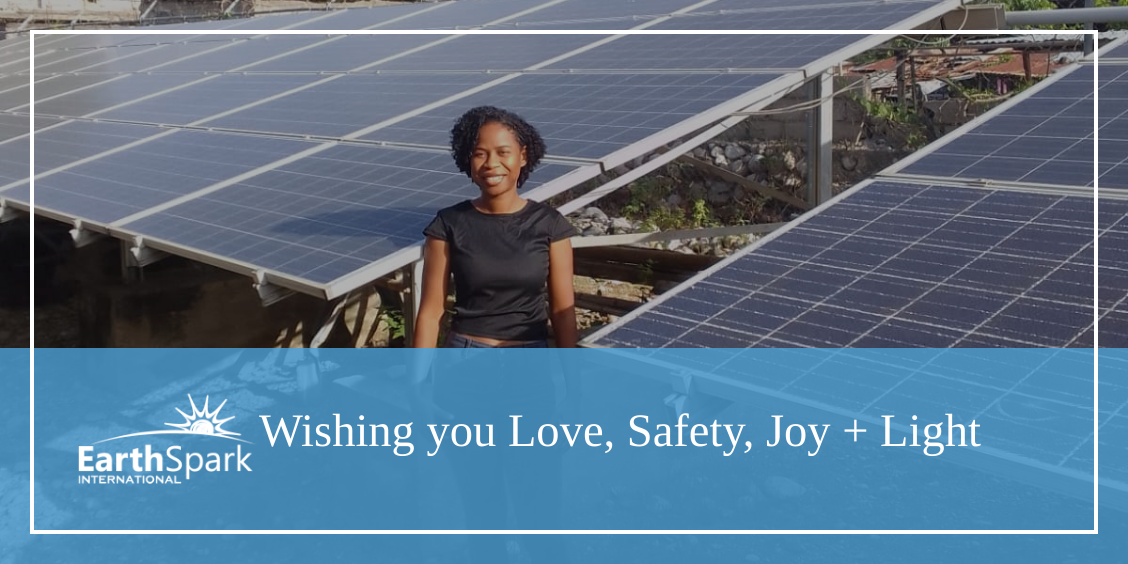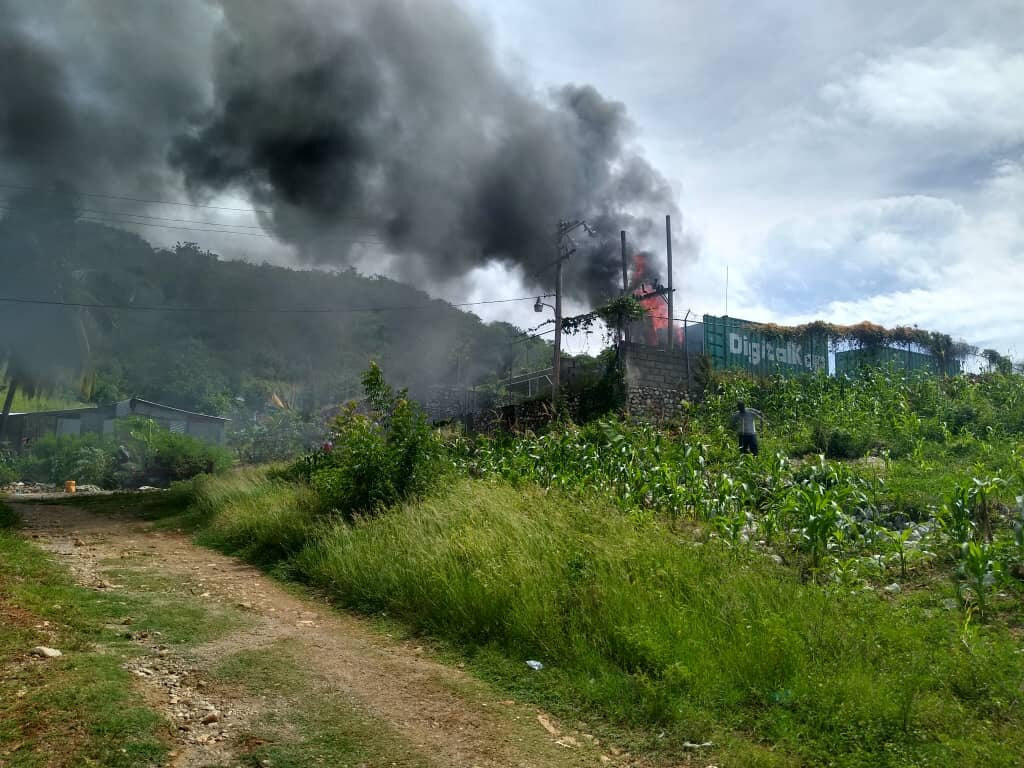|
In late October, EarthSpark had a newsletter all drafted about how, in spite of the increasing challenges in Haiti, our team was delivering excellent electricity service overall: “As Haiti’s capital city of Port-au-Prince continues to see alarming insecurity and food shortages, I am extremely proud that EarthSpark’s small team is delivering reliable electricity service to thousands of people in rural Haiti. I cannot say this for sure because there is no data available for other grids, but Ibelieve our grids are delivering what is likely the most reliable grid electricity in the entire country. The “big grid”, where it exists in Haiti, is very frequently out of service for days on end, and in some cases it has not functioned for years.” Because the EarthSpark grids are powered by solar energy, they had been insulated from the fuel shortages that had plagued the country. Our local team was managing everything locally, and – though not perfect – our service quality was very high. Then, unfortunately, a fire erupted in one of the containers at the generation site of the Tiburon grid, destroying the power electronics inside. Without these power electronics – the guts and brains of the system –no power could flow from the (undamaged) solar panels and batteries to the community.With only two grids in total, the Tiburon fire reduced by half EarthSpark’s shining counterexample of reliable electricity service in Haiti.  Fortunately, no one was injured in the fire, but unfortunately solar energy has not flowed to the community since. If you can, please consider supporting our campaign to repair the Tiburon grid by donating here. One point of light in the disaster is the continued functioning of the "distributed energy resource" ("DER") that EarthSpark installed on-site near the Tiburon health clinic in 2022 to offer and additional layer of resilience for the critical community services of the health center and the telecommunications tower. The microgrid-connected onsite solar + battery storage system was designed to offer a redundant layer of energy service so it could function autonomously in the event of a broader grid outage. The small silver lining of the Tiburon fire, if there is one, is that the theory of integrating DERs for critical services is proven out in practice. While the full grid service has been crippled, the DER is still providing clean, reliable electricity to the healthcare clinic and telecommunication tower. On December 24, the local EarthSpark and Enèji Pwòp teams were able to re-establish limited service in Tiburon by repurposing some spare parts and directly connecting a diesel-fueled generator. It will take months and funding to fully re-establish service. With national fuel shortages always a looming threat, Tiburon’s reliance on diesel is now very precarious in addition to being expensive and extremely difficult to manage from a logistics standpoint. Overall, 2023 delivered alarming news on the accelerating effects of climate change and the deteriorating security situation in Haiti. Against this background, EarthSpark is shouldering forward in the slow, bureaucratic processes of infrastructure development – plans, permits and financing to build dozens more resilient clean energy microgrids in Haiti – and also managing the day-to-day local operations and now repair efforts of the existing grids. This work has become even more difficult as the rising insecurity in Haiti has led many of our diligent and hard working counter-parties in the Haitian government to leave their positions, sometimes leaving the country. For those who are filling their roles, there is a steep learning curve and a very difficult working environment in which it is frequently not possible to safely move around the capital city. No matter how difficult the challenges, the EarthSpark and Enèji Pwòp teams remain committed to working towards expanded energy access for rural Haiti. Indeed the current scarcity of fuel and insecurity of travel underscore the importance of local, renewable-powered energy systems for community resilience. Alongside our efforts in Haiti, we are also now working with solar pioneers and community leaders in South Sudan and Puerto Rico to port EarthSpark’s lessons learned in community microgrids in Haiti to other under-served areas. As we stay focused on expanding service in Haiti, we’re thrilled to be supporting leaders in these other places to accelerate their own just energy transitions. As we look forward, we are taking a deep breath, appreciating all of the communities - local and international - with whom we share the work of powering forward on building clean, fair, locally-powered energy systems. Thank you for being part of this community!
0 Comments
Your comment will be posted after it is approved.
Leave a Reply. |
EarthSpark supporters make our work possible. Thank you for considering a donation towards eliminating energy poverty in Haiti.
Read the full blog - click here!
|
EarthSpark International is a non-profit 501(c)3 organization.


